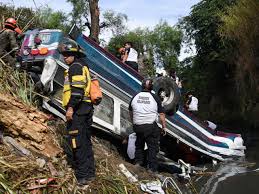The Rise of Arevalo: A New Voice in Political Landscape

Introduction
The political landscape across the globe is continuously evolving, with new leaders emerging and challenging established norms. One such figure making waves is Bernardo Arevalo, the recently elected President of Guatemala. His ascent to power marks a significant shift in the Central American nation, stirring hopes for reform amid deep-rooted issues of corruption and governance. Understanding Arevalo’s journey and policies is essential for grasping the future trajectory of Guatemala and its implications for the region.
Background of Arevalo
Bernardo Arevalo, a sociologist and former diplomat, is the son of former President Juan José Arévalo, who ruled from 1945 to 1951. Arevalo emerged as a candidate from the Semilla party, advocating for anti-corruption measures and social justice. Running on a platform designed to tackle entrenched corruption and bolster democratic processes, Arevalo resonated with voters dissatisfied with traditional political elites. His victory in the second round of elections in August 2023 has not only represented a personal triumph but also a collective demand for accountable governance.
Key Policies and Initiatives
Arevalo’s campaign focused on several critical areas: strengthening judicial independence, advancing social equity, and revitalising economic growth. He has pledged to implement extensive reforms aimed at removing corrupt officials from power and ensuring that public funds are used transparently. With Guatemala facing numerous challenges, including poverty and inequality, Arevalo’s proposed policies aim to uplift the underprivileged while stimulating sustainable economic opportunities.
Challenges Ahead
Despite his electoral triumph, Arevalo faces significant challenges in implementing his agenda. His party has a minority presence in Congress, and he will need to navigate a fragmented political landscape. Resistance from established political factions, which may feel threatened by his reformist approach, could hinder his ability to drive change effectively. Furthermore, overcoming rampant corruption and entrenched interests will require not only political will but broad public support.
Conclusion
As Arevalo embarks on his presidential journey, his leadership could either signify a beacon of hope for Guatemala or become mired in the challenges of reforming a deeply flawed system. His commitment to integrity and accountability resonates with a population yearning for change, but the road ahead will be fraught with obstacles. Observers of Latin American politics will undoubtedly watch closely as Arevalo attempts to deliver on his promises, forecasting significant implications for both Guatemala and neighbouring countries seeking similar reforms.









